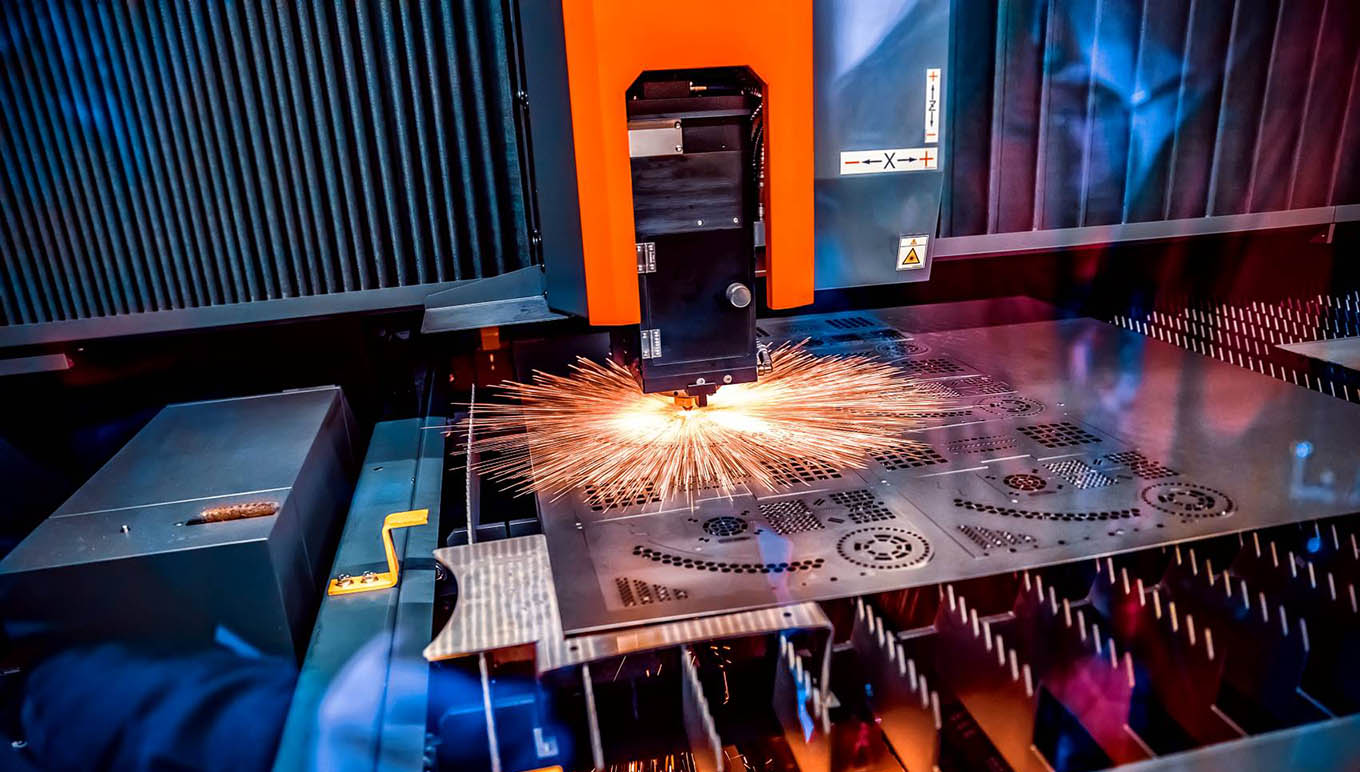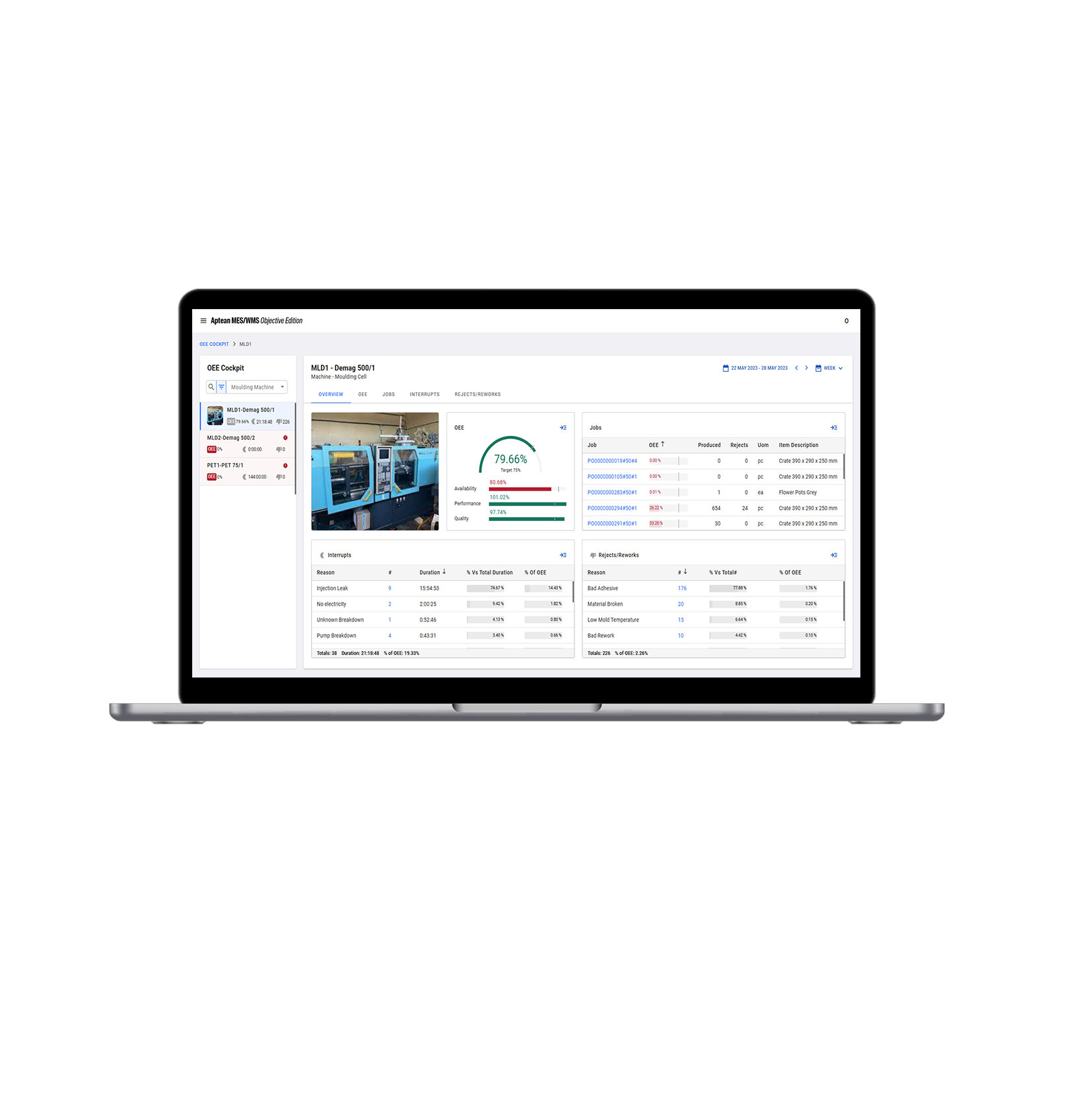Heavy Metal: 5 Ways Fabricated Metal Manufacturers Can Increase Production
Heavy Metal: 5 Ways Fabricated Metal Manufacturers Can Increase Production
Heavy Metal: 5 Ways Fabricated Metal Manufacturers Can Increase Production
Mar 18, 2021
 Andy Pickard | Senior Solutions Consultant, Sales
Andy Pickard | Senior Solutions Consultant, Sales
After a difficult year (to say the least), there’s good news for the manufacturing sector. Demand for fabricated metal products has recovered from an 8% drop during 2020, and is set to grow by 1.4% year-over-year until 2024.
But while growth is good, fabricated metal manufacturers can’t rely on market recovery alone to boost your bottom line. Over the past 12 months we’ve seen the impact of massive supply chain disruption. The cost of raw materials has – and will continue to – fluctuate. The political and economic climate is eroding global free trade. So, how do you run a profitable business while navigating these forces outside your control?
Instead of worrying about the things beyond your reach, the best thing to do is take command of the things you can control. Like maximizing the speed and efficiency of production, to put your operation in the best possible position for whatever the future holds.
Aptean is already empowering manufacturers to get their organizations future-ready. And we’ve put together five tips to help your business increase production—drawn from our experience working with companies in the fabricated metal industry…
1. Understand Your Customer Demands
First and foremost, to increase production, you need to know what your pipeline looks like and where your biggest customer opportunities lie. This will enable you to manage workflow effectively, bring resourcing in line with production and shape business development.
The better you can plan and manage demand, the closer you can align forecasted activity with your product development strategies and engineering output, so that you’re always on the front foot. These things working in harmony will build strong foundations for a smooth, efficient production line—which uses every minute of uptime to drive profit.
How do you do get to this point? Many fabricated metal manufacturers are achieving alignment using an ERP solution, which synchronizes workflow with business strategies. Manufacturing ERP software will give your organization complete visibility of current and future workload, to increase strategic control and rationalize decision-making.
2. Integrate and Automate Production Wherever Possible
The best production lines are formed of tightly integrated processes. Your business needs to make sure that every element – from job quote to shipment – is part of a seamless chain.
To make this happen, look at your current production journey to understand where weaknesses and inefficiencies lie. Even small ‘tighten-ups’ can make a massive difference to your production speeds.
This review is also a great opportunity to assess the operational technology you’re using, to see whether it’s time for an upgrade. Ideally, your manufacturing ERP software should be able to go beyond process optimization and integrate other solutions—such as your CAD system.
Integrating CAD design with production will enable you to introduce time saving processes, such as pushing design changes directly into the ERP. You’ll also be able to automatically generate a bill of materials when your customer approves a design.
Even if your system is well integrated, if you’re not using a manufacturing ERP to automate everyday operational tasks then you’re not maximizing output. And you risk falling behind better prepared competitors; 63% of global metals manufacturers are considering investing in automation if they haven’t done so already, to accelerate their recovery post-COVID-19.
3. Match People and Material Availability to Your Production Schedule
If you want to increase production, visibility is really the core objective. If you don’t have a complete, accurate overview of current and upcoming workload, it’s very difficult to plan materials and people, to optimize your time and resources.
Investing in manufacturing ERP software gives you 360-degree data insight, to help you control what’s happening now and prepare for what’s coming up. And software developed specifically for the manufacturing sector can also include built-in features that will supercharge your production capabilities.
For example, some manufacturing-specific ERPs allow you to record and manage people’s specific skillsets and certifications, so you can source particular people based on the jobs about to go live. This way, you should never have to endure a human capital or materials bottleneck again.
The right software will also enable you to distinguish between inventory that is available to promise, and inventory that has already been allocated to scheduled jobs—so you’re never allocating the same materials twice.
Most importantly, manufacturing ERP software will give you the dynamic capability to react to real-time events and make in-the-moment changes. With this level of flexibility, you will never lose production momentum due to unforeseen changes. And you can feel confident in the delivery dates you set with your customers.
4. Increase the Flexibility of Your Operation
Optimization of available inventory is a needs-must for business growth. But to take production to the next level, your business needs to be looking toward dynamically managing resources.
Using the technology already at your disposal effectively will allow you to take on a diverse range of jobs while maximizing production uptime.
For example, with manufacturing ERP software in place, you can improve the way you schedule assets and processes to increase productivity. This could include grouping ‘like’ jobs together, to reduce machinery set-up changes—rather than just plowing through jobs in chronological order.
By making the most of how each machine is used, you can find the optimal mix between standardized component production and bespoke, build-to-order programs. This opens the door for attracting new jobs and customers.
5. Analyze the True Cost to Build
Ultimately, you’re not looking to increase production for its own sake. You want to increase business profitability. And while some jobs are possible to execute, their true cost to build erodes profit margin.
Every strong industry player is fine tuning the way they build components and products. Maximizing time and cost efficiency may not be enough to lead the market.
Integrating all your processes through one manufacturing ERP solution does way more than improve production rates; it gives your business insight into production’s impact on your bottom line.
Rather than blindly taking every opportunity, interrogate your data to understand the true cost to build. Use manufacturing ERP software that integrates quotes with the cost of materials and provides feedback on the actual cost of each job, to track your profitability.
Then focus on the jobs that your business does best, in order to make the most money with the resources you have available.
Put smart decisions into action with Aptean manufacturing ERP
With four years of growth on the horizon, it’s time to get your house in order. To look at where your operation can be optimized to deliver jobs quickly and cost effectively.
This will vary from business to business. However, if I was to give fabricated metal manufacturers one piece of advice, it would be this:
The more you can see and control what’s happening in your business, the smarter your decisions will be. And the quicker you put smart decisions into action, the faster your profitability will increase.
The right manufacturing ERP software will unlock this value for your organization, delivering all the functionality you need to increase production.
Aptean’s ERP is already empowering fabricated metal companies to run quicker AND smarter. For example, our ERP software has enabled The Metalworking Group (MWG) to increase on-time, in-full delivery to 86% in less than 12 months of going live. And we’re ready to help other fabricated metal companies increase production by driving more profitable business decisions.
Interested? Download our ebook: 7 Reasons Your Fabricated Metal Company Needs an Industrial Manufacturing ERP to start running at speed in a complex world.
Or you can book a chat with an Aptean manufacturing ERP expert.
Start Transforming Your Business Today
If you’re ready to take your discrete and industrial manufacturing business to the next level, we’d love to help.



